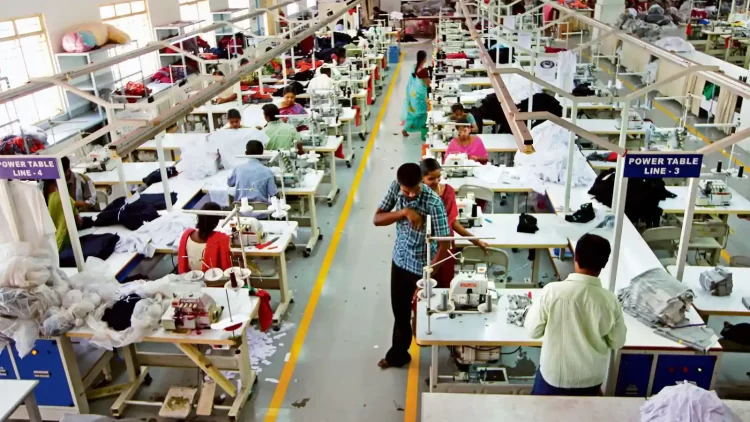PM MITRA aligns with the Govt.’s efforts to sign free trade agreements, providing access to developed markets for Indian textiles, apparel, and other industries.
The establishment of PM MITRA mega textile parks is a significant step towards making India a global textiles hub. The parks will attract investment, create jobs, and revolutionize the textiles sector. The cluster-based approach will enhance the quality and competitiveness of products, boost exports, and strengthen India’s position in global supply chains. The parks’ sustainability and adoption of global best practices will make India a preferred destination for investors, manufacturers, exporters, and international buyers. The PM MITRA parks will help Indian textiles get deeper access to profitable developed markets and propel India towards becoming the largest exporter of textiles and apparel in the world by 2047.
PM MITRA mega textile parks in seven states
On Friday, Prime Minister Narendra Modi announced that ‘PM MITRA mega textile parks’ will be established in seven states, including Tamil Nadu, Telangana, Karnataka, Maharashtra, Gujarat, Madhya Pradesh, and Uttar Pradesh. These parks are expected to attract massive investments and create around 20 lakh direct and indirect jobs. The prime minister asserted that the establishment of these parks will be a significant step towards the ‘Make in India’ and ‘Make for the World’ initiatives.
The Parks to Boost Textile Sector
According to Piyush Goyal, the Minister of Commerce & Industry, Consumer Affairs, Food & Public Distribution, and Textiles, the PM MITRA mega textile parks will be established with an outlay of Rs 4,445 crore, making it the biggest-ever infrastructure initiative for the textiles sector. These parks will provide state-of-the-art infrastructure and attract domestic and foreign investment. Goyal also stated that the parks would be examples of sustainability with zero liquid discharge, common effluent treatment, adoption of global best practices, and the use of renewable energy.
A Boost for the Indian Textiles Industry
Goyal described the establishment of the mega textile parks as a cluster-based approach that would enhance the quality and competitiveness of products, boost exports, and strengthen India’s position in global supply chains. He congratulated the people of the seven states who will “further fuel the Aatmanirbhar Bharat journey & make India a textiles hub.” India’s rich tradition of textiles, which dates back to ancient times, is set to take a quantum leap towards becoming a global investment, manufacturing, and export hub.
Inspired by the Prime Minister’s 5F vision, the PM MITRA Park is a significant step forward in achieving the Aatmanirbhar Bharat and ‘Vocal for Local’ initiatives. The park will revolutionize the sector by creating global champions with the help of world-class facilities, state-of-the-art infrastructure, and an integrated value chain at each location. The Master Developer (MD) will be responsible for designing, planning, building, financing, operating, and maintaining the PM MITRA Park.
Benefits of the PM MITRA Parks
The establishment of the PM MITRA Parks is a big leap for the industry, as the value chain is currently scattered across the country, which adds costs and delays in each link of the chain. The parks will help scale up operations, cut costs, improve efficiency, and supply high-quality textiles and apparel. The selection process for the PM MITRA Parks was transparent, validated by the innovative PM GatiShakti National Infrastructure Master Plan.
Collaborative Federalism
The establishment of the PM MITRA Parks is another example of collaborative federalism as both the Centre and the states concerned will be partners in the Special Purpose Vehicles (SPV) that will set up and manage these parks. PM MITRA dovetails with the government’s initiatives to sign free trade agreements, which open up developed markets for Indian textiles, apparel, and several other sectors. India has already signed trade deals with the UAE and Australia and is negotiating with Canada, the UK, and the European Union.
(India CSR)







